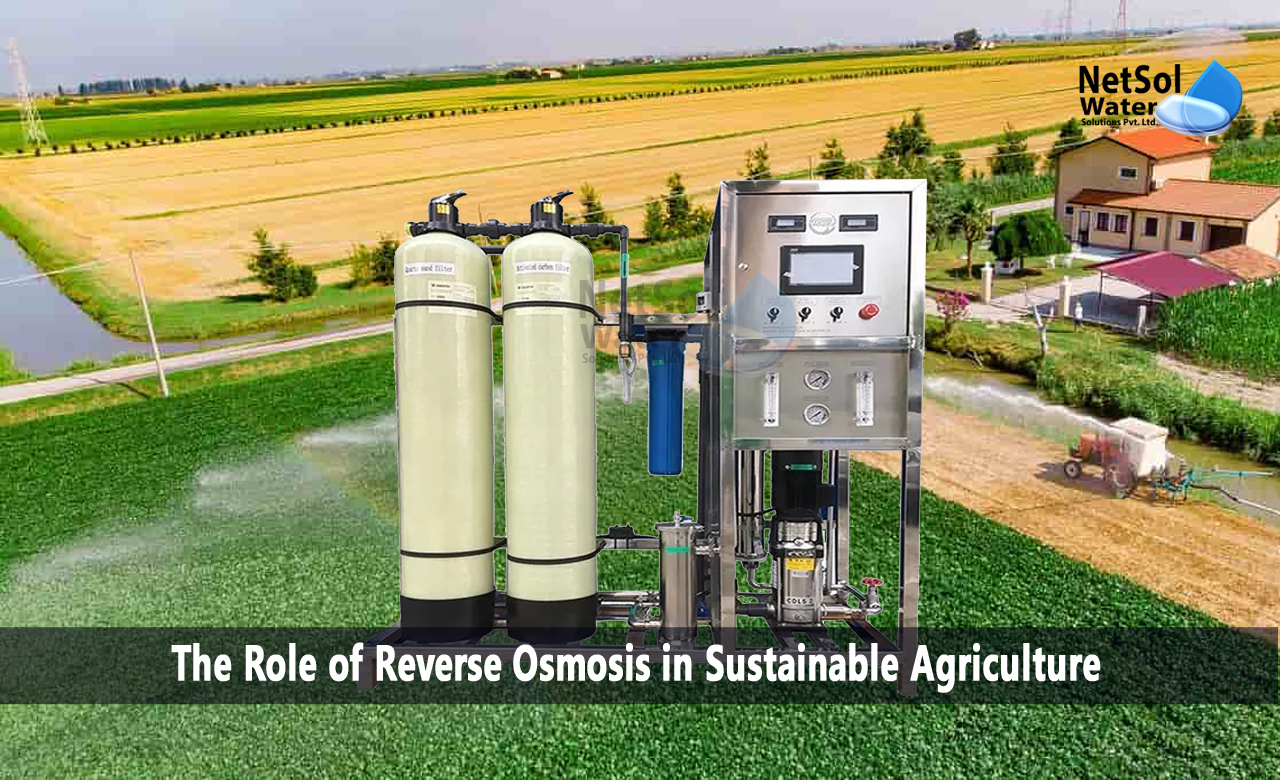Introduction:
Sustainable agriculture practices are essential for ensuring food security and minimizing the environmental impact of farming. With increasing water scarcity and growing concerns about water quality, it becomes crucial to adopt efficient water management strategies in agriculture. Reverse osmosis (RO) technology has emerged as a valuable tool in sustainable agriculture, offering a range of benefits that enhance crop yield while conserving water resources. In this blog, we will explore the role of reverse osmosis in sustainable agriculture, focusing on how it can improve crop productivity and contribute to water conservation efforts.
What is the Role of Reverse Osmosis in Sustainable Agriculture?
1- Water Purification and Irrigation:
One of the significant applications of reverse osmosis in sustainable agriculture is water purification for irrigation purposes. RO systems can effectively remove contaminants, salts, and other impurities from water sources, ensuring that crops receive clean and high-quality irrigation water. By using RO-treated water, the risk of soil salinity and nutrient imbalances is reduced, leading to improved crop health and increased yield. Additionally, the absence of harmful substances in the irrigation water reduces the chances of crop diseases and pest infestations.
2- Nutrient Management:
RO systems can also play a role in nutrient management, specifically in hydroponic and aquaponic systems. These systems rely on a nutrient-rich water solution to provide essential elements to plants. By using RO technology to purify water sources, farmers can precisely control the nutrient composition of the solution, ensuring optimal growth conditions for plants. This enables farmers to tailor the nutrient supply to the specific needs of different crops, resulting in improved nutrient uptake, enhanced plant health, and higher crop yields.
3- Efficient Water Usage:
Water scarcity is a significant challenge in agriculture, making efficient water usage critical for sustainable farming practices. Reverse osmosis can contribute to water conservation efforts in several ways:
a. Concentrate Management: RO systems generate a concentrate stream as a byproduct of the purification process. Instead of disposing of this concentrate, it can be used for other purposes, such as fertilization or non-potable water applications. This reduces water waste and maximizes the utilization of available resources.
b. Precision Irrigation: RO-treated water allows for precise control over irrigation volumes and timing. This precision irrigation approach ensures that crops receive the necessary amount of water, minimizing water loss through runoff or over-irrigation. By providing plants with the right amount of water at the right time, water usage is optimized, resulting in significant water savings.
c. Recycling and Reuse: RO systems can be integrated into water recycling and reuse systems on farms. Wastewater, drainage water, or runoff from fields can be treated with reverse osmosis, allowing for the recovery and reuse of the water. This reduces reliance on freshwater sources and minimizes the need for additional irrigation water, leading to overall water conservation.
4- Environmental Impact Reduction:
The use of reverse osmosis in agriculture contributes to the reduction of environmental impacts associated with conventional farming practices. By purifying water sources, the use of chemical fertilizers and pesticides can be minimized, resulting in less pollution of water bodies and soil. Additionally, efficient water usage through RO technology reduces the need for extensive water extraction, preserving natural water resources and ecosystems.
Conclusion:
Reverse osmosis technology offers significant benefits in sustainable agriculture by enhancing crop yield and promoting water conservation. Through water purification, nutrient management, efficient water usage, and reduced environmental impact, RO systems contribute to more sustainable farming practices. By adopting reverse osmosis in agriculture, farmers can optimize irrigation water quality, reduce water waste, and minimize the use of chemicals, leading to improved crop productivity, water resource sustainability, and long-term agricultural viability.
Netsol Water is Greater Noida-based leading water & wastewater treatment plant manufacturer. We are industry's most demanding company based on client review and work quality. We are known as best commercial RO plant manufacturers, industrial RO plant manufacturer, sewage treatment plant manufacturer, Water Softener Plant Manufacturers and effluent treatment plant manufacturers. Apart from this 24x7 customer support is our USP. Call on +91-9650608473, or write us at enquiry@netsolwater.com for any support, inquiry or product-purchase related query.



